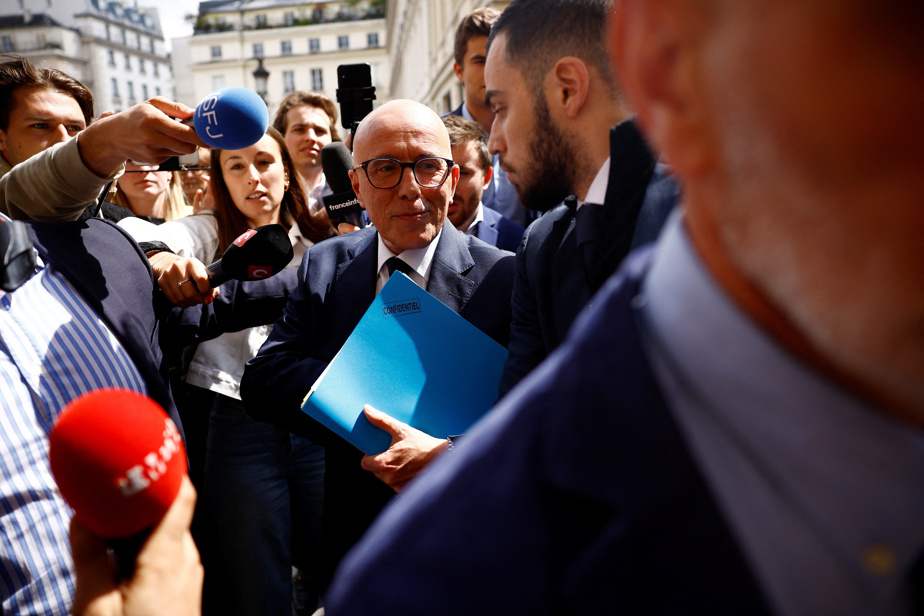The triggering of early elections in France in reaction to the clear victory of the National Rally (RN) in Sunday’s European vote is leading to an accelerated reconfiguration of the country’s political spectrum.
The exercise turns out to be particularly rich in twists and turns on the right side since the announcement on Tuesday by the president of the Republicans, Éric Ciotti, of the conclusion of an alliance with the radical right formation headed by Marine Le Pen sparked a internal outcry.
Several tenors of the traditional right party have denounced as a “betrayal” the decision of the politician, who wishes to present single candidates with the RN in several constituencies during the election scheduled for June 30 and July 7.
At the end of an emergency meeting of the political bureau, the general secretary of the Republicans, Annie Genevard, declared that Mr. Ciotti was in “total break” with the statutes and the party line and had consequently been excluded.
The main person concerned quickly made it known through his X account that this decision had no value and that he remained president of the party, causing confusion a few days before the deadline for the presentation of candidates.
During the European elections, they obtained 7% of the votes while the RN, with 31% of the votes, won almost twice as much support as the presidential camp at 14.6%.
Éric Zemmour’s radical right party Reconquest also fell apart publicly on Wednesday after its head of the list in the European elections, Marion Maréchal, called for voting for the RN candidates despite the absence of any agreement on this subject with its formation. She too was excluded.
Jean-Pierre Beaud, a specialist in French politics attached to UQAM, notes that the postponement of the votes of Reconquête, which won 5.5% of the votes in the European elections, would represent a significant gain for Marine Le Pen’s party. .
The party could also recover part of the Republican vote if the alliance mentioned materializes against a backdrop of internal dispute and leads to joint candidacies.
Emmanuel Macron hopes, notes Mr. Beaud, that the elected officials associated with the traditional right-wing formation after the election will be more moderate than Éric Ciotti and may potentially want to join a broader coalition.
The president would also like to be able to rally left-wing elected officials to his cause following the election, but the scenario seems more unlikely at this stage, notes the analyst.
The Greens, Socialists, Communists and the radical left group La France insoumise agreed to present single candidates during the ballot.
Their common program remains to be defined and no leader has yet been appointed to lead the campaign.
Mr. Beaud notes that it is possible that certain socialist elected officials refuse to withdraw during the legislative elections in favor of candidates from La France insoumise, headed by the controversial Jean-Luc Mélenchon, but their number remains to be seen.
He defended his decision to call legislative elections in the wake of the European vote, noting that he wanted a popular “judgment” to establish a government that could “respond to the demands of the French”.
Jean-Pierre Beaud believes that the president’s bet is “very risky” since it seems unlikely that his party will obtain an absolute, or even relative, majority at the end of the vote.
An Ifop poll presented on Tuesday indicates that the RN finds itself at 35% in voting intentions, up slightly compared to the European election.
The parties of the outgoing majority supporting Emmanuel Macron would win 18% of the vote, the Republicans, 9% and Reconquest, 4%.
Voting intentions cannot be transposed directly into the number of seats, in particular because the two-round system, with the carryover of votes that it entails, complicates the situation.
It is not excluded that the parties supporting the head of state even end up with fewer votes in total than the RN and the left coalition, notes Mr. Beaud, who evokes the possibility of “great disillusionment” for the head of state.




